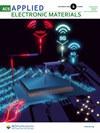Semen adaptation to microbes in an insect
IF 4.3
3区 材料科学
Q1 ENGINEERING, ELECTRICAL & ELECTRONIC
引用次数: 0
Abstract
Sperm function is suggested to evolve by sexual selection but is also reduced by microbial damage. Here, we provide experimental evidence that male fertility can adapt to microbes. We found that in vivo, male fertility was reduced by one-fifth if sperm encountered microbes in the females that they had not previously been exposed to, compared to sperm from males that coevolved with these microbes. The female immune system activation reduced male fertility by an additional 13 percentage points. For noncoevolved males, fertility was larger if microbes were injected into females after they had stored away the sperm, indicating microbial protection as a previously unrecognized benefit of female sperm storage. Both medical and evolutionary research on reproductive health and fertility will benefit from considering our findings that the impact of microbes on sperm depends on their joint evolutionary history. Our results may assist in reconciling contradictory results of sexually transmitted disease effects on sperm and bring empirical realism to a recently proposed role of locally adapted reproductive microbiomes to speciation.昆虫精液对微生物的适应性
人们认为精子功能是通过性选择进化而来的,但微生物的破坏也会降低精子功能。在这里,我们提供了雄性生育能力能够适应微生物的实验证据。我们发现,在体内,如果精子在雌性体内遇到了它们以前从未接触过的微生物,与来自与这些微生物共同进化的雄性的精子相比,雄性的生育能力会降低五分之一。雌性免疫系统激活后,雄性的生育能力又降低了 13 个百分点。对于非共同进化的雄性来说,如果在雌性将精子储存起来后再将微生物注射到它们体内,生育率会更高,这表明微生物保护是雌性精子储存的一种以前未被认识到的益处。我们的研究结果表明,微生物对精子的影响取决于它们的共同进化史,考虑到这一点,有关生殖健康和生育能力的医学研究和进化研究都将从中受益。我们的研究结果可能有助于调和关于性传播疾病对精子影响的相互矛盾的结果,并使最近提出的适应当地的生殖微生物群对物种繁衍的作用具有现实意义。
本文章由计算机程序翻译,如有差异,请以英文原文为准。
求助全文
约1分钟内获得全文
求助全文

 求助内容:
求助内容: 应助结果提醒方式:
应助结果提醒方式:


